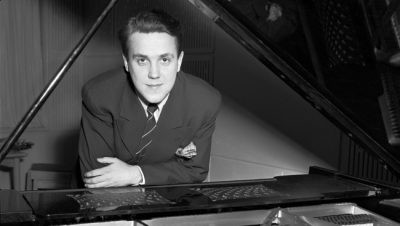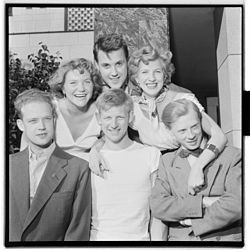Norway’s entertainment and music world was mourning the loss this week of composer and producer Egil Monn-Iversen, also known as the “godfather” and “sphinx” of Norwegian show business. Monn-Iversen died late last week at the age of 89 after a lengthy illness.

His career started in the 1940s when he and his artistic partner and wife Sølvi Wang founded the musical group The Monn Keys. It generated and attracted several of the post-war stars in Norway, and also paved the way for a long string of assignments for the musical and versatile Monn-Iversen.
Newspaper Aftenposten reported how he wrote the music for around 100 TV shows and films and produced 25 of them. He was in charge of music at state broadcaster NRK, where he also arranged and produced Norway’s version of the Eurovision song contest, Melodi Grand Prix, for several decades.
Iversen was also chairman of the The Norwegian Opera, worked for the national cultural council (Kulturrådet) and for Det Norske Teatret. He also was responsible for both the opening and closing ceremonies of the Winter Olympics at Lillehammer in 1994.

He worked closely with Norwegian celebrities including actors Rolv Wesenlund, Liv Ullmann and Einar Schanke, author Thorbjørn Enger, singer and composer Alf Prøysen, vocalist Sissel Kyrkjebø, composer Arne Nordheim and pianist Kjell Bækkelund.
“This is really one of the great personalities who’s passed away,” Sverre Gunnar Haga, the former journalist who wrote an unauthorized biography of Monn-Iversen and branded him as the “godfather” of Norwegian entertainment. “He’s perhaps one of the most important in Norway in the past century. His contribution to Norwegian cultural life can’t be exaggerated.”
Minister of Culture Linda Hofstad Helleland called Monn-Iversen a “pillar” within Norwegian cultural life the past 50 years. “In addition to his contributions within music and film, he had central positions in Norwegian theater, opera and NRK,” Helleland told Aftenposten.
He had his critics, because he was so dominant and had a complex personal life, while others claimed that he simply was “the best” at what he did. He was born in Oslo in 1928 and educated in both music and economics. His father was chairman of Norges Sangerlag (singers’ association) and often took him along to choir rehearsals. At the age of four, he was conducting street musicians in an Oslo backyard.
He went on to be composer, conductor, film producer, music chief, talent scout and program creator. Funeral arrangements were pending.
newsinenglish.no/Nina Berglund

